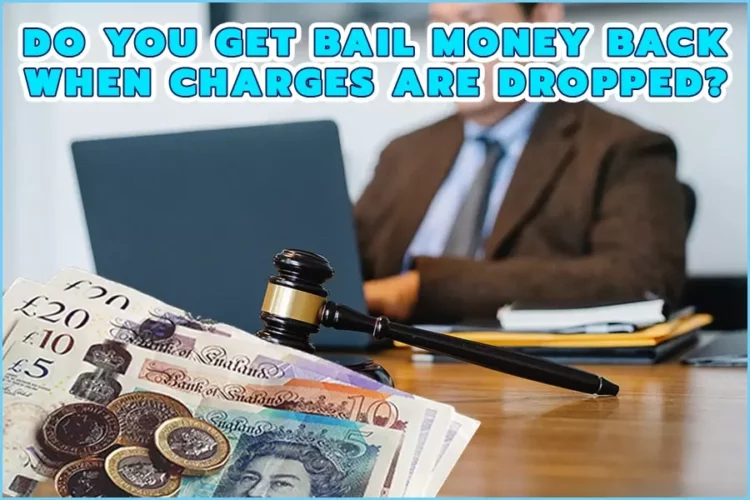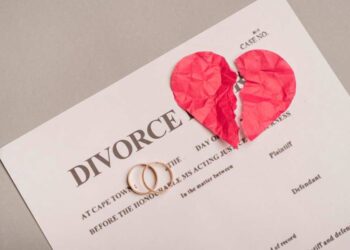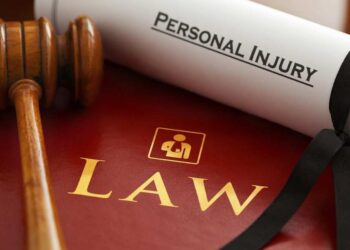When it comes to bail, many people pose the question; do you get bail money back when charges are dropped?
And if so, how do you get your money back? If you’re arrested and charged with a crime, your first worry is probably getting out of jail- fast!
Otherwise, it could mean you spend the night in a dingy cell or return home. Bail money is your get-out-of-jail card, and it’s the only thing that stands between you and your freedom.
So, how do you start the process of getting out? We’ll look at these questions and more in this article.
Do You Get Bail Money Back When Charges Are Dropped?
If the defendant appears in court as required and the charges are dropped, the court will reimburse your cash bail. The court usually mails the check within six weeks to the address of the person who posted bail.
However, if the defendant does not appear in court, they’ll have to forfeit the bail money. Moreover, there is no reimbursement if you hire a bail bond agent.
What Is Bail Money?
When someone is arrested and taken to jail, they will have to go before a judge. The judge will decide whether or not to set bail.
Bail money is a payment made to the court to release a person who has been arrested and is awaiting trial.
The idea behind bail money is it gives the accused an incentive to show up for their trial. If the defendant does not appear for their trial, the bail money will be forfeited.
The bail money is usually paid by the individual or by a third party on their behalf. And this is paid in cash or by using a bail bond agent respectively.
What Are The Different Types Of Bail Bonds?
The set type of bail depends on the severity of the crime and the judge’s discretion. There are four common types of bail bonds: cash bail, surety bail, property bail, and release on own recognizance.
1. Cash Bail
Cash bail is the most common type of bail. It involves paying the full bail amount to the court directly.
The pros of cash bail are that it is easy to set up. Furthermore, you’ll get a full refund minus small court fees when your case wraps up.
The cons are that it can be expensive. Many won’t immediately raise the amount required by the courts and have to use a bondsman.
2. Surety Bail
Surety bail is when a third party, usually a bail bondsman, pays the bail amount on behalf of the accused person.
The third party then charges a fee for their services. Usually, the judge will set your bond at 10% of the total amount. You’ll have to pay the bondsman the 10%, which is usually non-refundable.
The pros of surety bail are a low cost to the accused person. However, any amount you raise (the premium, which is 10%) is non-fundable to you.
The bondsman will ensure that you attend your trial by any means possible, even dragging you across the country. If they fail to do so, they will pay the court the full sum of your bail amount.
3. Property Bail
Property bail is when the accused person posts bail by pledging property they own as security.
If the accused person does not show up for their trial, the court will seize their property to settle the bail.
The drawback of this type of bail is that it’ll tie up your assets until the trial is over. However, property bails aren’t for everyone. You’ll have to meet certain requirements such as;
- If you are unable to pay bail due to a lack of funds
- If you own a house or have a considerable amount of equity in your home
- If you have a restricted budget but own expensive jewelry or other tangible assets such as vehicles, artwork, collections, etc
- If you reside in one of the states that allow property bonds. And if you can establish the worth of your real property by tax documents or other records.
4. Release On Own Recognizance
Release on own recognizance (ROR) is when the accused person promises to show up for their trial without posting bail. In this case, most charges are usually misdemeanors.
The judge will consider several factors when determining if someone is eligible for Release On Own Recognizance (ROR) bail.
They include your good record, long-time residence in a community, support of family members, and employment.
How Is Bail Money Determined?
The determination of bail money can be complex; several factors arise. The judge considers the severity of the crime, the defendant’s flight risk, and their ties to the community. The set amount of bail money can vary greatly from case to case.
How Bail Bonds Work
Bail bonds are a necessary part of the criminal justice system. They allow people under arrest to be released from jail while awaiting their trial. It can be an important step in getting a person’s life back.
When the police arrest someone, they are taken to jail and held until prosecution day. It usually happens within a few days of the arrest.
The arraignment is when the defendant appears before a judge and learns the charges against them.
At this point, the defendant may choose to plead guilty or not guilty. If they plead not guilty, the next step is to set a trial date.
In most cases, people charged with a crime will not be able to post bail. Therefore, they will have to stay in jail until their trial. However, this can be a major inconvenience and disrupt their lives in many ways.
For example, they may lose their job if they cannot go to work. The accused persons may also lose their homes if they cannot pay the rent.
However, a bondsman can be of help at this point. The defendant usually pays a certain amount of money to the bail bondsman.
The bondsman then fronts the money to release the defendant from jail. This money is non-refundable.
The bond amount that a judge sets is generally 10% of the total bail amount. So, if the judge posts your bail at $ 10,000, you pay the bondsman $1000.
Where Can You Find A Bondsman?
There are many bail bond agents in most cities. You can usually find them in the phone book or online.
It is important to do your research before choosing a bail bond agent. Make sure that you choose one who is licensed and insured.
The bonds agent may ask you to provide collateral to get bail money. It is a security deposit held until the defendant appears for their trial. The collateral can be a cash deposit or something of value, like a car or a house.
When you post bail, the understanding is that you will show up for your court date. If you don’t, the bondsman has the right to go looking for you.
If they find you and bring you back to court, the court reimburses bond money to the bondsman.
What Happens If You Get Charged With A New Crime While Out On Bail?
If you are out on bail and are charged with a new crime, you may be subject to several different penalties. The outcomes will depend on the severity of the new charge and your state’s laws.
First, the court will likely revoke your bail and send you back to jail. Additionally, you may be subject to increased bail amounts or different conditions of release.
Finally, if the court convicts you of the new crime, it will likely be used as evidence against you in any future criminal proceedings.
Do You Get Bail Money Back If Found Guilty?
Regardless of whether you’re proved guilty or innocent, you are entitled to a full refund of bail money.
So long as the charges are dropped, the court dismisses or wraps up the case. The court only requires bail money to get you to show up for your trial; it’s not a money-making scheme.
You should receive your refund within 30 days (six weeks) of your acquittal or dismissal date.
You don’t have to do anything to get your bail money back. The courts automatically refund you.
So, how much money do you get back? If you paid a cash bond, you would get your money back minus any court costs or fees.
If you do not receive a refund, you can contact the court administrator where they heard your case. Remember to have your receipt with you.
Conclusion
Do you get bail money back when charges are dropped? Well, if you decide to post bail for yourself or a loved one, think about how much it will cost you and if it is worth it to pay the whole sum to the court.
Remember that if you pay your bail money directly to the court, it is refundable even if you are found guilty. However, keep in mind that you will be required to post the entire bail amount. In any case, it all comes down to your preference.










